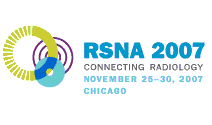
Abstract Archives of the RSNA, 2007
Alessandro Furlan MD, Presenter: Nothing to Disclose
Dirk Jan Van Der Windt MSc, Abstract Co-Author: Nothing to Disclose
Michael Nalesnik MD, Abstract Co-Author: Nothing to Disclose
Jan N.M. IJzermans MD, Abstract Co-Author: Nothing to Disclose
Michael Peter Federle MD, Abstract Co-Author: Nothing to Disclose
To investigate the association of single and multiple hepatic adenomas with the presence of liver steatosis.
We reviewed the medical records at two university hospitals, UPMC, Pittsburgh, USA (1988-2006) and Erasmus MC, Rotterdam, The Netherlands (2000-2005) to find 54 patients (52 women, 2 men; mean age at diagnosis: 38 years) with a pathology- proven diagnosis of HA and a contrast-enhanced CT or Gadolinium-enhanced MRI demonstrating the lesion. The pathology diagnosis was achieved by complete tumor resection in 39 (72%) patients (35 by lobectomy and 4 by liver transplantation), and by core needle biopsy of at least one hepatic lesion in the remaining 15 (28%) patients. The number of lesions and hepatic steatosis were assessed on the basis of the pathology reports and imaging findings. The difference in occurrence of hepatic steatosis in patients with single vs. multiple HA was assessed by means of the chi-square test.
Contrast-enhanced CT and Gadolinium-enhanced MRI were performed in 33 (61%) and 21 (39%) patients, respectively. Twenty-four patients (44%) had a single HA, and 30 (56%) patients had multiple adenomas (from 2 to more than 20). Hepatic steatosis was present in 31 (57%) of the 55 patients. In patients with single HA, hepatic steatosis was found in 8 of 24 (33%) cases, while in patients with multiple adenomas, steatosis was present in 23 of 30 (77%) cases (p =0.001).
Hepatic adenomas are frequently observed in a background of liver steatosis. Multiple HA are significantly more often associated with liver steatosis than single HA. The increasing prevalence of obesity in Western societies may result in a group of patients with multiple adenomas that require a more complex management.
Hepatic adenoma (HA) is a rare benign liver tumor whose exact pathogenesis is not fully understood, especially in case of multiple adenomas.
Furlan, A,
Van Der Windt, D,
Nalesnik, M,
IJzermans, J,
Federle, M,
Multiple Hepatic Adenomas: Increased Prevalence with Liver Steatosis. Radiological Society of North America 2007 Scientific Assembly and Annual Meeting, November 25 - November 30, 2007 ,Chicago IL.
http://archive.rsna.org/2007/5009383.html

